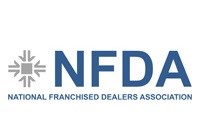The National Franchised Dealers Association (NFDA) has assured its members that it is continuing to scrutinise several “issues and ramifications” linked to car manufacturers’ implementation of agency model car retail.
The industry body has appointed legal representation from TLT LLP to investigate the shift and is continuing to engage with regulators, including the European Commission and the UK’s Competition and Markets Authority (CMA), against the backdrop of the sector’s block exemption review.
Lotus Cars, Mercedes-Benz, Stellantis and Volkswagen are among the automotive brands poised to ditch traditional franchise car retail contracts for some or part of their retail process as they pursue closer relationships with customers and an omnichannel sales journey.
But the NFDA warned that the move, which will impact franchised dealers and consumers, could result in OEM fines of up to 10% of a company’s turnover if not correctly rolled-out.
 Outlining the ongoing role of the NFDA in protecting the interests of its members, NFDA chief executive Sue Robinson said: “The NFDA continues to work closely with its franchised dealer members, specialist legal advisers, TLT LLP, and leading counsel to assess the possible scenarios affecting the future relationship between franchised dealers and manufacturers.
Outlining the ongoing role of the NFDA in protecting the interests of its members, NFDA chief executive Sue Robinson said: “The NFDA continues to work closely with its franchised dealer members, specialist legal advisers, TLT LLP, and leading counsel to assess the possible scenarios affecting the future relationship between franchised dealers and manufacturers.
“We also continue to engage with regulators, in particular, the European Commission and the UK’s Competition and Markets Authority (CMA) to outline franchised dealers’ views.
“There are a number of issues and ramifications which will impact franchised dealers and consumers depending on how the current business models will evolve. We are currently highlighting these in our response to the CMA’s consultation.
“Going forward, NFDA will engage further with the CMA to elaborate on any of the points identified”.
Back in November the NFDA highlighted concerns about the impact of the agency model and OEMs’ direct sales on the car retail sector in its Consultation Position Paper and Response to the Competition and Markets Authority (CMA) on “Retained Vertical Agreements Block Exemption Regulation”.
Revealing the extent of what is at stake as new rules are established ahead of the existing Vertical Block Exemption Regulation 330/2010 (VBER) expiration in May, 2022, the document pointed out that the UK’s automotive retail sector was “crucial to UK and European mobility and prosperity”, providing almost 600,000 jobs.
In an online document entitled ‘NFDA – Exploring the Competition Law Risks of Agency Models in the Automotive Sector’ the industry body also highlighted the potential risks for OEMs in implementing an agency model.
It stated: “Putting aside the question of whether the agency model represents a good outcome for consumers, the risks associated with implementing a distribution model that – if not structured correctly – fails to satisfy the complex and strict legal criteria applicable to it are substantial.
“From a competition law perspective, these range from huge fines (up to 10% of group turnover) to director disqualification (up to 15 years) for the senior management of the businesses involved.”
It said that OEMs pursuing a ‘genuine agency’ model risk undervaluing the market-specific risks that OEMs will have to remove from dealers’ shoulders (both going forward and on a legacy basis) to benefit from benign competition law treatment.
Meanwhile, those that seek to apply a partial agency model could face issues with competition law which, the NFDA said, “focuses on substance over form and looks at the economic reality of the situation”.
OEMs who might propose a ‘non-genuine agency’ model on the basis that they are prepared for their agents to share commission with customers (and so retain some control over the transaction price), this can also create genuine antitrust risk, it added.
The web page detailing the NFDA – Exploring the Competition Law Risks of Agency Models in the Automotive Sector document is currently asking for feedback from car retailers on their experiences of an agency model roll-out or related negotiations.



















Login to comment
Comments
No comments have been made yet.